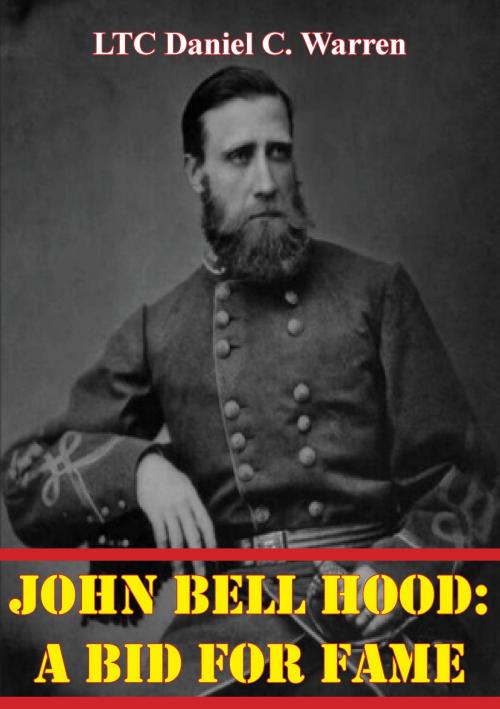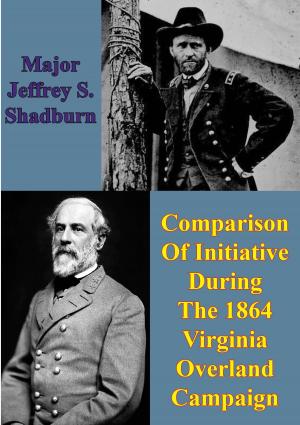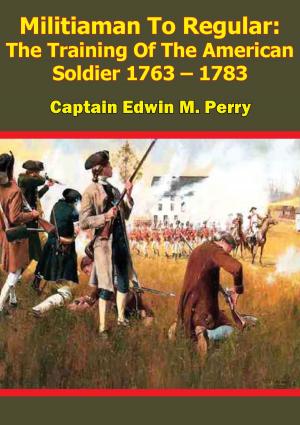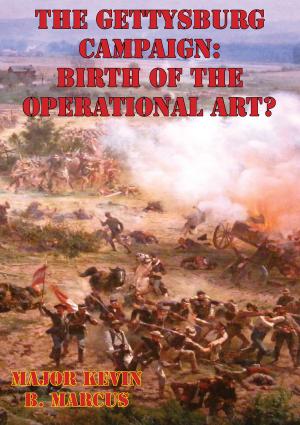John Bell Hood: A Bid For Fame
Nonfiction, History, Modern, 19th Century, Americas, United States, Civil War Period (1850-1877), Military| Author: | LTC Daniel C. Warren | ISBN: | 9781786251299 |
| Publisher: | Golden Springs Publishing | Publication: | November 6, 2015 |
| Imprint: | Golden Springs Publishing | Language: | English |
| Author: | LTC Daniel C. Warren |
| ISBN: | 9781786251299 |
| Publisher: | Golden Springs Publishing |
| Publication: | November 6, 2015 |
| Imprint: | Golden Springs Publishing |
| Language: | English |
John Bell Hood was appointed to the United States Military Academy from Kentucky and graduated 44th in a class of 52 in July 1853. The next eight years were spent in infantry duties in California and cavalry service in Texas. With the outbreak of the Civil War Hood resigned his commission and entered the Confederate Army as a resident of Texas.
During the Peninsular Campaign, Hood actively sought opportunities for combat and established a reputation as an offensively-minded, daring combat leader. He received favorable mentions in official reports, especially at Gaines’ Mill, though taking heavy casualties. At Second Manassas, it became necessary for the Corps commander, Longstreet, to caution him against over-rapid advancement.
He received a wound in the left arm at Gettysburg after protesting the orders which he received to advance on .Little Round Top, Upon recovery he went west with Longstreet, but lost his right leg from a wound at Chickamauga.Despite his incapacitating wounds, which necessitated his being strapped to a horse in order to ride, Hood was promoted to lieutenant general and sent as a Corps commander to the Army of Tennessee. During his service under Johnston, Hood systematically undermined the latter’s already tenuous relationship with Richmond, He was named a full general and replaced Johnston as commander of the Army of Tennessee July 18, 1864. In late 1864 he invaded Tennessee, an operation which culminated in the total destruction of his army at Nashville in December 1864. He was subsequently relieved of command at his own request.
Hood’s career is characterized by ambition, bravery, and the use of influential friends to gain positions of high responsibility. While his tactical conceptions were sound, they failed at higher levels of command because of his inability to work with subordinates. On various occasions he circumvented or ignored his own superiors.
John Bell Hood was appointed to the United States Military Academy from Kentucky and graduated 44th in a class of 52 in July 1853. The next eight years were spent in infantry duties in California and cavalry service in Texas. With the outbreak of the Civil War Hood resigned his commission and entered the Confederate Army as a resident of Texas.
During the Peninsular Campaign, Hood actively sought opportunities for combat and established a reputation as an offensively-minded, daring combat leader. He received favorable mentions in official reports, especially at Gaines’ Mill, though taking heavy casualties. At Second Manassas, it became necessary for the Corps commander, Longstreet, to caution him against over-rapid advancement.
He received a wound in the left arm at Gettysburg after protesting the orders which he received to advance on .Little Round Top, Upon recovery he went west with Longstreet, but lost his right leg from a wound at Chickamauga.Despite his incapacitating wounds, which necessitated his being strapped to a horse in order to ride, Hood was promoted to lieutenant general and sent as a Corps commander to the Army of Tennessee. During his service under Johnston, Hood systematically undermined the latter’s already tenuous relationship with Richmond, He was named a full general and replaced Johnston as commander of the Army of Tennessee July 18, 1864. In late 1864 he invaded Tennessee, an operation which culminated in the total destruction of his army at Nashville in December 1864. He was subsequently relieved of command at his own request.
Hood’s career is characterized by ambition, bravery, and the use of influential friends to gain positions of high responsibility. While his tactical conceptions were sound, they failed at higher levels of command because of his inability to work with subordinates. On various occasions he circumvented or ignored his own superiors.




![Cover of the book Memoirs Of The Confederate War For Independence [Illustrated Edition] by LTC Daniel C. Warren](https://www.kuoky.com/images/2013/february/300x300/9781908902788-QQkl_300x.jpg)




![Cover of the book Colonel John Pelham: Lee's Boy Artillerist [Illustrated Edition] by LTC Daniel C. Warren](https://www.kuoky.com/images/2014/august/300x300/9781782898436-d99G_300x.jpg)




![Cover of the book Transforming Under Fire: the Atlanta Campaign of 1864 [Illustrated Edition] by LTC Daniel C. Warren](https://www.kuoky.com/images/2014/august/300x300/9781782893950-LgN5_300x.jpg)
